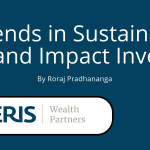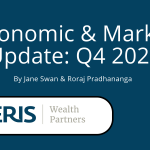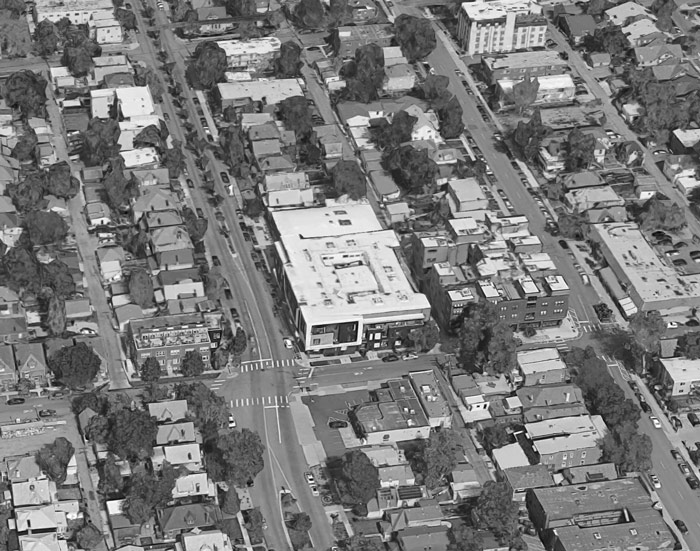A Much Needed Equitable Growth Era for Community Wealth Building
By Michael Lent, Roraj Pradhananga, & Casey Verbeck
Community wealth building solutions aim to help address racial and gender discrimination and spread prosperity while ensuring sustainable economic growth in historically marginalized and under-resourced communities.
Tragically, the COVID-19 pandemic has exacerbated the inequalities and inequities faced by our most vulnerable communities. The poorest populations, both here in the U.S. and globally, have been the hardest hit in terms of disproportionately worse health outcomes and in loss of income, jobs and educational opportunities.1 The World Bank projected in 2020 that extreme poverty and income inequality for low-income and emerging economies, especially communities of color would rise because of the pandemic.2
These impacts have brought more attention to, and growing demand for, community wealth building solutions such as Community Development Finance institutions (CDFIs) and other private market solutions that help economically distressed communities meet their basic needs.
CDFIs play a crucial role in building community wealth by providing capital that supports businesses that create quality jobs, pay living wages, provide food security solutions, and broaden access to affordable housing options. By offering access to aligned, patient and lower cost capital to small businesses and entrepreneurs in under-resourced communities, CDFIs aim to help reduce the wealth gap equitably.
What We are Doing to Help Meet the Challenges of Today
At Veris, Community Wealth Building is one of our core investable themes. We have consistently sought out and invested in companies and funds that support communities that have been systematically excluded from mainstream economic success. CDFIs have been a particular area of focus for us ever since our firm was founded. Today there are 10 institutions and 13 community loan funds that are part of the Veris Investment strategy.
While CDFIs and specific loan funds have historically addressed broader issue areas and catalyzed transformative changes in under-resourced communities around the country, their focus has shifted as a result of the pandemic.
2020 – 2021 Targeted Issue Areas
- Immediate infrastructure response to COVID-19
- Continuing to support hard hit businesses
- Forbearance and working with borrowers to help them stay in their homes
- Administering PPP funds to underserved communities
The CDFI Fund, an agency of the US Department of Treasury that provides financial assistance to CDFIs, awarded $204.1 million to 397 CDFIs in 2020.3 We support Opportunity Finance Network’s demand for an additional $1 billion in appropriations for the CDFI Fund in fiscal year 2021. Thankfully, the Coronavirus Response and Relief Supplemental Appropriations Act of 20214 provides $1.25 billion for CDFIs to help communities impacted by the COVID-19 pandemic. The CDFI Fund will award these dollars through a new program called the CDFI Rapid Response Program (CDFI RRP).
Beyond CDFIs, we are paying attention to other innovative approaches that help historically marginalized communities build wealth including new ownership structures such as Employee Stock Ownership Plans (ESOPs), financial inclusion solutions for those who lack credit history, new climate justice influenced affordable housing options and education and upskilling solutions for non-traditional students.
At Veris, when we are constructing portfolios that align with our clients’ values, we may employ a variety of approaches to support community wealth building including:
- Place Based Investing
- Social and Racial Justice
- Economic Viability
- Access to capital
Asset allocation supporting these efforts are identifiable in our fixed income and public equity strategies and alternative assets.
Let’s Shift Focus from Surviving to Thriving
As we seek to tackle the pandemic and its terrible impact on low-income communities, Veris will be expanding our focus from recovery to building back better. In the pursuit of economic stability, we believe it is crucial to contribute to narrowing the wealth gap. All small businesses and all communities deserve equal opportunity to build wealth and thrive.
Even with the recent additional relief effort from Capitol Hill, we need to see substantial capital flows from private investors in the U.S. in order to address the challenges faced by our most vulnerable populations. Many small businesses in these stressed communities have already shut down or are on the verge and it is likely that we have many months in front of us before we will see a dramatic recovery.
As we look to the future, the impact investor’s mindset must shift from a focus on supporting stability to aligned and equitable growth that ensures households and communities have access to the resources they need to succeed. As a field, let us help people move from surviving to thriving.
In the near future, Veris will be releasing a thought piece further exploring Community Wealth Building.
DISCLAIMER
The information contained herein is provided for informational purposes only, represents only a summary of topics discussed, does not represent personalized investment advice or recommendations, and simply reflects the opinions of the author’s, which are subject to change without notice. Investing involves risk, including the loss of all amounts invested, and readers should be guided accordingly. Additionally, certain information contained herein is sourced from third parties. While we believe such information to be accurate, we make no guarantees as to the accuracy or completeness of such information and make no representations to that effect.
Endnotes
2 https://blogs.worldbank.org/voices/what-covid-19-can-mean-long-term-inequality-developing-countries
3 https://www.cdfifund.gov/programs-training/programs/cdfi-program/award-announcement
Authors:
- Michael Lent, Chief Investment Officer, Partner
- Roraj Pradhananga, Senior Research Analyst
- Casey Verbeck, Managing Director of Marketing and Business Development, Partner







